
Introduction
Ancient Greek mathematics laid down the foundation for many modern scientific fields. From geometry to the concept of mathematical logic, the insights generated by great minds of that era continue to impact today’s scientific advancements significantly. The intellectual heritage of Greek mathematicians such as Euclid, Pythagoras, and Archimedes has provided a framework from which modern science has blossomed.
The Pioneers of Greek Mathematics
Greek mathematics began with Thales and Pythagoras. They were among the first to recognize the importance of deductive reasoning in mathematics, establishing principles that remain the core of mathematical procedures.
Thales is often considered the father of geometry, while Pythagoras introduced the Pythagorean theorem, vastly influencing subsequent generations. These mathematical pillars cemented a tradition of rigorous proof, systematically impacting mathematics and the scientific method.
The Euclidean Revolution
Euclid’s seminal work, ‘The Elements,’ compiled and expanded upon the knowledge of his predecessors, shaping the structure of mathematics for centuries. His work in geometry has formed the backbone of mathematics education across cultures and ages.
He introduced axiomatic systems that helped systematize mathematical proofs and established logical structures that continue to be utilized in contemporary education and various scientific disciplines.
Archimedes and the Birth of Calculus
Archimedes, often hailed as one of the greatest mathematicians of antiquity, made significant contributions that foreshadowed modern calculus. His method of exhaustion was an early form of integration, influencing later mathematicians like Newton and Leibniz.
This technique allowed for the calculation of areas and volumes, which is fundamental in many modern scientific computations and engineering tasks.
The Legacy in Modern Science
Ancient Greek mathematics has far-reaching implications beyond theoretical mathematics. For instance, the development of statistics, physics, computer science, and astronomy heavily relies on geometric principles and mathematical logic initiated by the Greeks.
These ancient insights have been instrumental in technological advancement and innovation, proving timeless and adaptive due to their foundational strength and logical consistency.
In Conclusion
The profound influence of ancient Greek mathematics on modern science underlines the enduring value of innovation and intellectual inquiry. The contributions of these early mathematicians continue to serve as a vital bridge connecting antiquity with modernity, fostering a legacy of knowledge that inspires and informs the scientific endeavors of today.
Ancient Greek mathematics laid down the foundation for many modern scientific fields. The contributions of these early mathematicians continue to serve as a vital bridge connecting antiquity with modernity. 
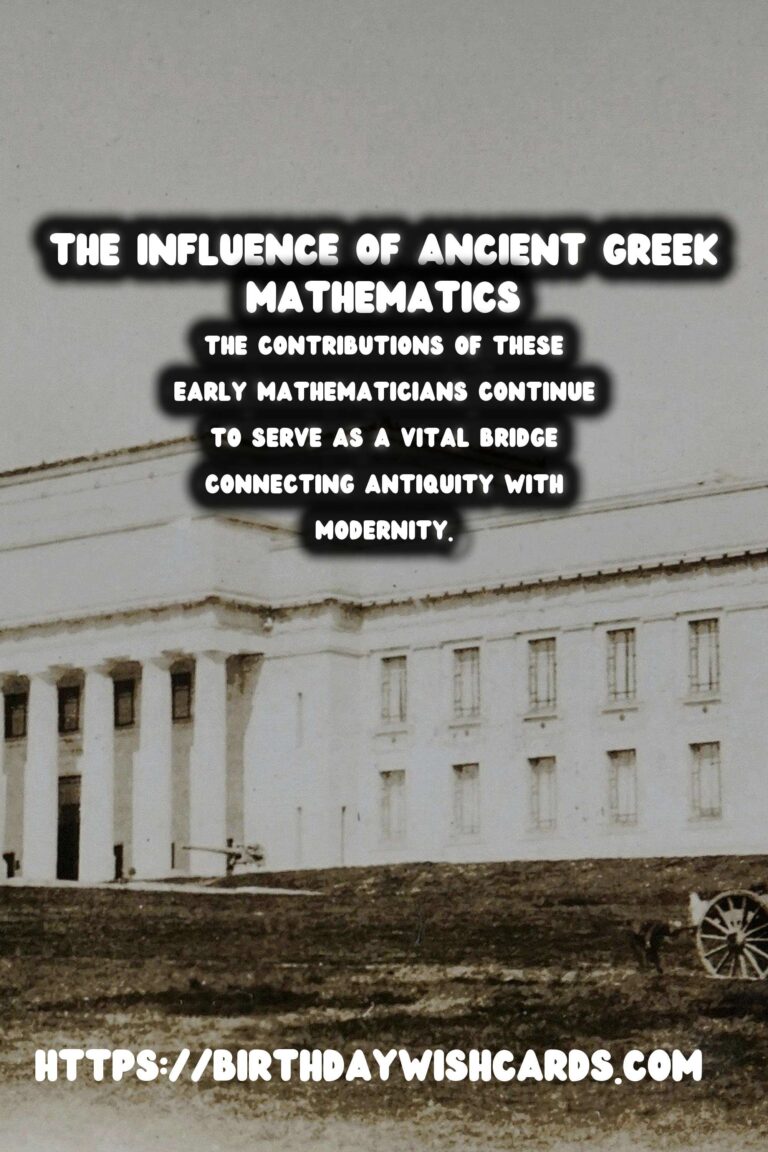
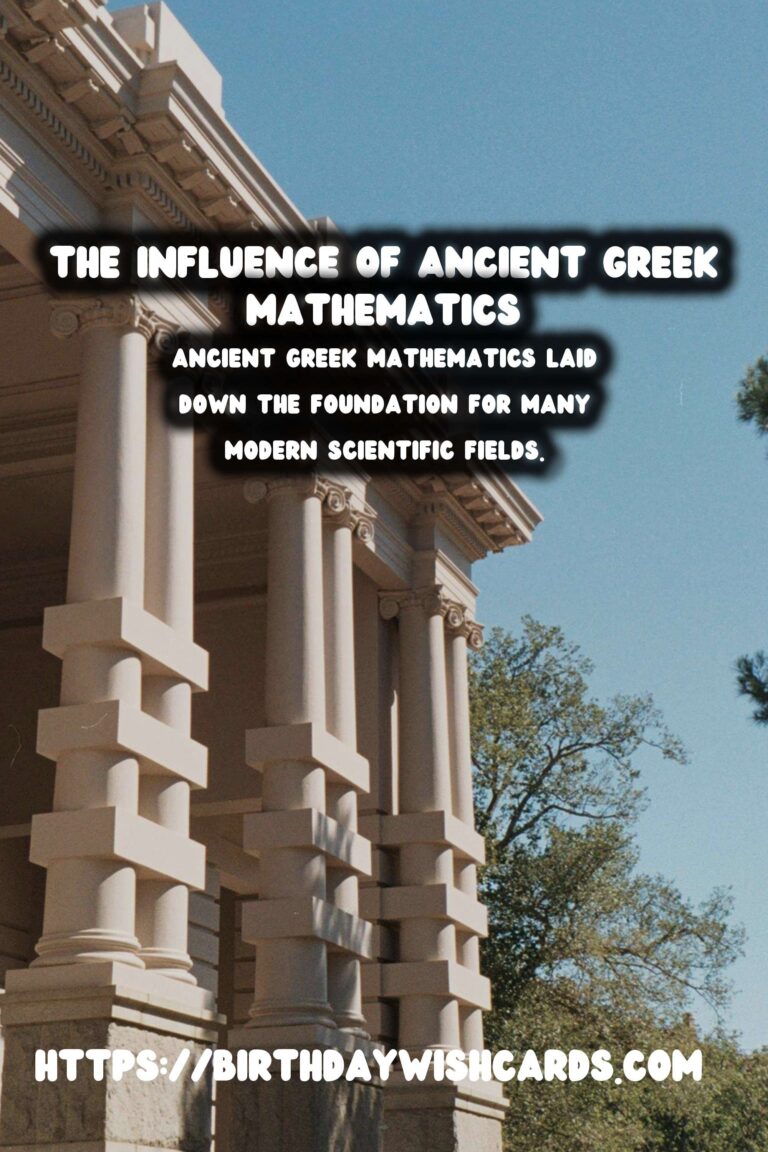

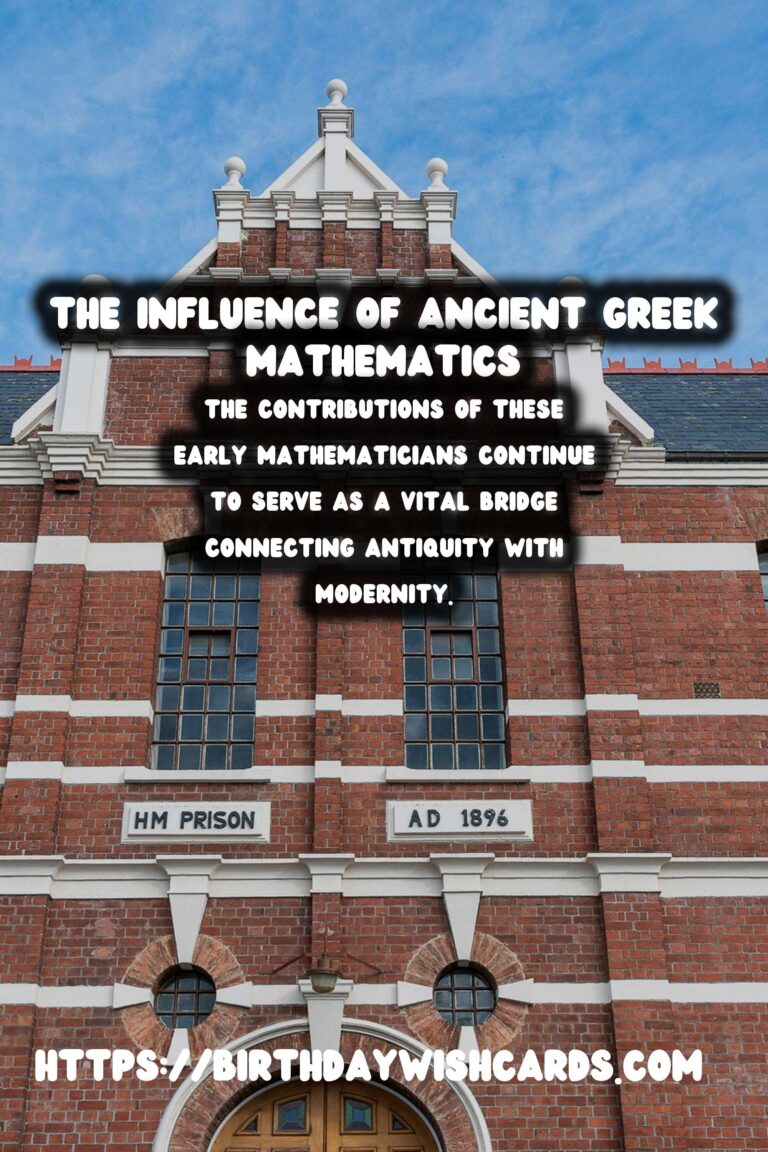
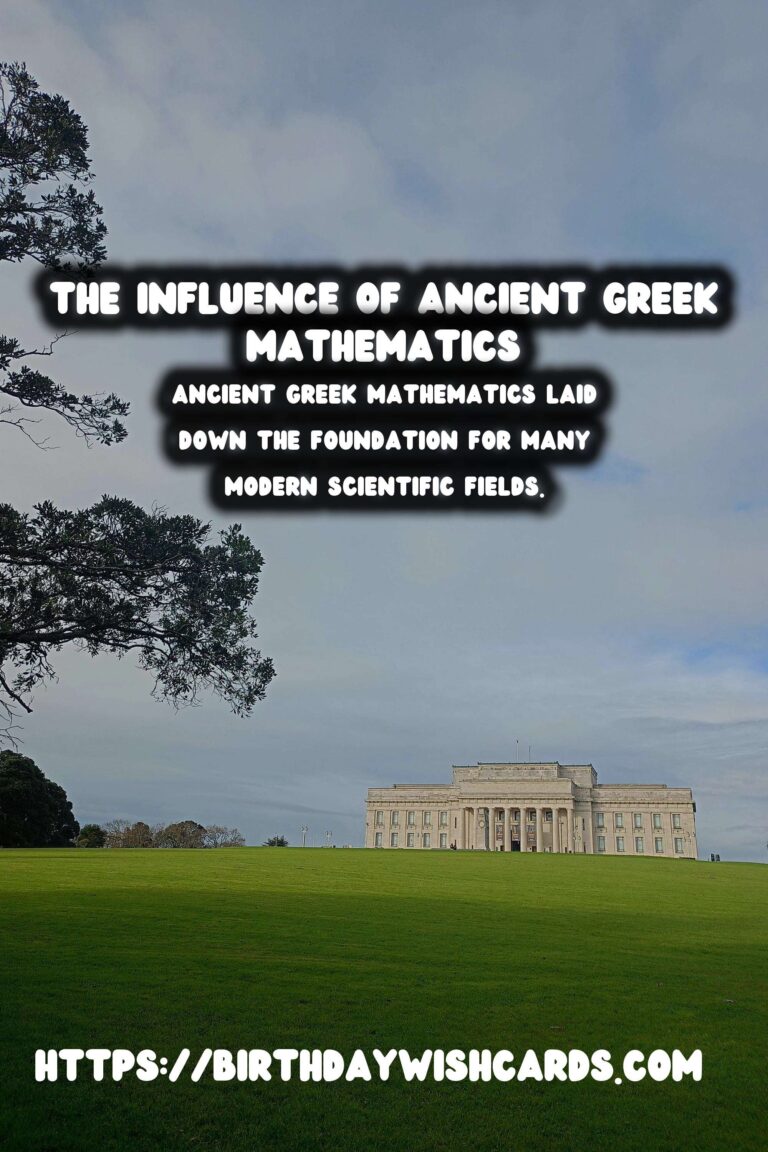


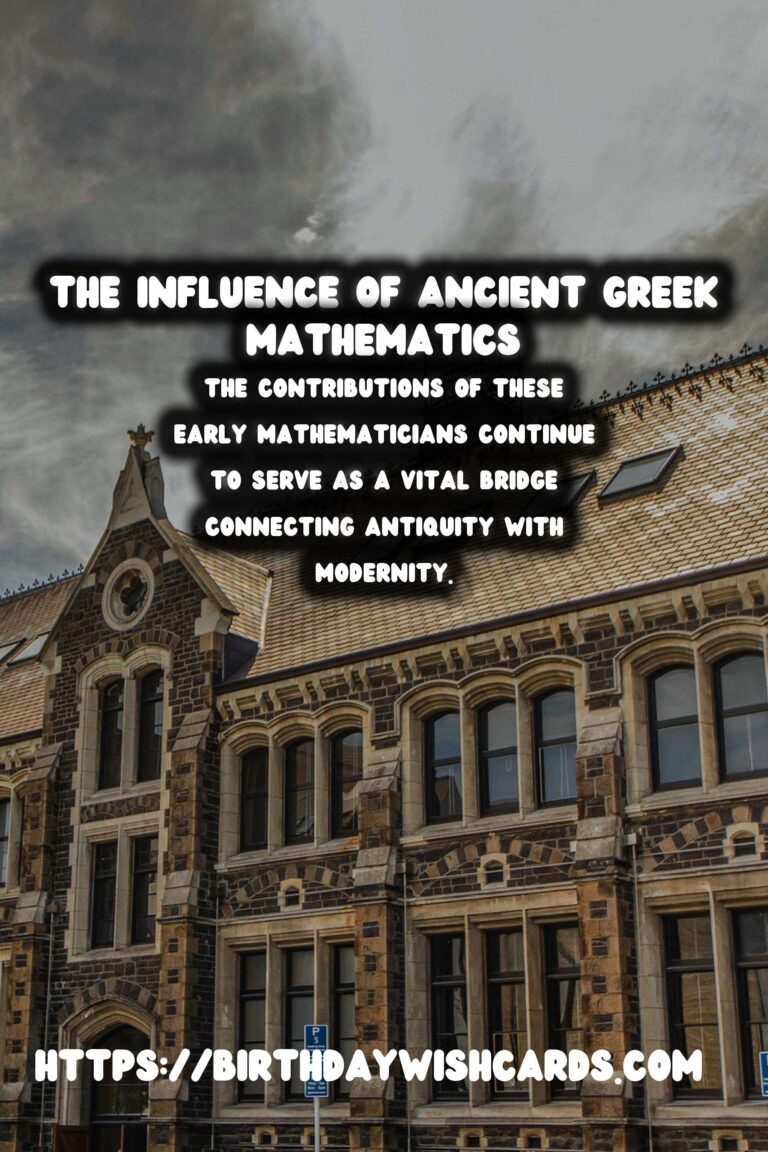

#GreekMathematics #ModernScience




